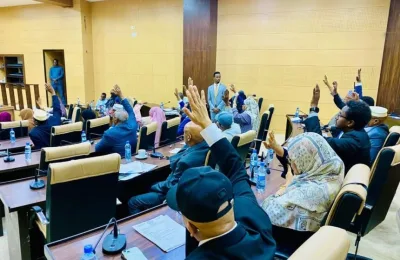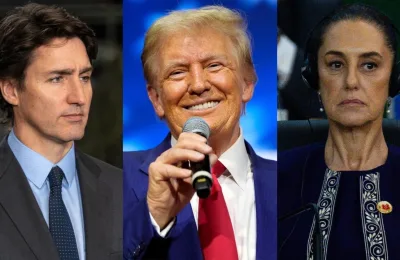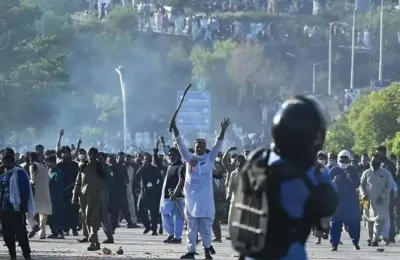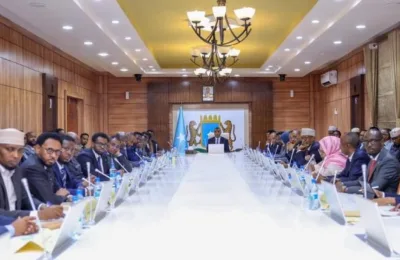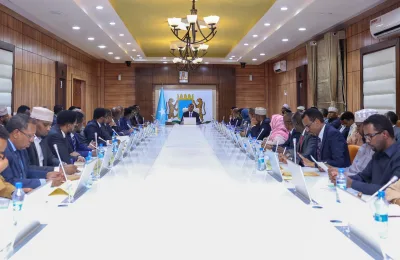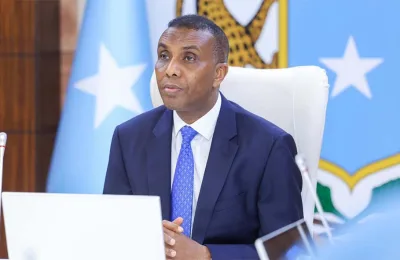IT SEEMED an irrational decision 20 years ago. DP World is one of the world’s largest…

IT SEEMED an irrational decision 20 years ago. DP World is one of the world’s largest maritime firms. From a squat office overlooking Dubai’s bustling Jebel Ali port, it directs operations in 40 countries. Most are in busy shipping hubs such as London and Rotterdam. But in the 1990s it started making surprisingly big investments in the Horn of Africa. It built a large port in Djibouti, and is now working on another in Somaliland (see map). The combined GDP of the two African entities is smaller than that of Moldova. Yet the firm sees the region as a land of opportunity.
So do the rulers of United Arab Emirates (UAE), one of whose components, Dubai, owns a majority stake in DP World. It is one of several Gulf states trying to gain a strategic foothold in east Africa through ports. Controlling these offers commercial and military advantages but risks exacerbating tensions in the region.

Executives at DP World argue that Africa needs many more ports—especially in the Horn, where conflict has stifled trade. Ethiopia, populous and fast-growing, lost its coastline when Eritrea broke away in 1991. Its 105m people rely on Djibouti for 95% of their trade. Farther inland, countries such as South Sudan, Uganda and Rwanda struggle to reach markets. DP World thinks the region from Sudan to Somalia needs 10-12 ports. It has just half that. “The whole Horn of Africa is short of ports. It’s stifling,” says one executive.
The firm’s first foray was on Djibouti’s coast. When DP World won its first concessions there in the 1990s, the Emiratis were among the few investors interested in the small and poor former French colony. DP World built and operated a new container terminal, Doraleh, and helped finance roads and other infrastructure. Doraleh is now the country’s largest employer and the government’s biggest source of revenue. It runs at nearly full capacity, handling 800,000 containers a year. Much of its cargo travels along a Chinese-built railway from Addis Ababa, Ethiopia’s capital.
Djibouti’s profile rose further after the terrorist attacks on America of September 11th, 2001, when America opened a military base there. France and China also have bases; other navies patrol off its coast to deter Somali pirates. But when the Emiratis wanted to open their own naval base they were rebuffed, partly because of their close ties to Djibouti’s rival, Eritrea (the two states had a bloody border dispute in 2008). In 2015 the UAE started building a naval base in Assab, in southern Eritrea. The base has been used in the Saudi-led war against Houthi rebels in Yemen. It would be the jumping-off point for a mooted amphibious assault on Hodeida, Yemen’s main port, now the focus of heavy fighting. The UAE also helped mediate Eritrea’s peace deal with Ethiopia signed on July 9th, ending decades of hot and cold war. If it holds, the truce could end UN sanctions and open Eritrea to investment. Assab and another port, Massawa, could be expanded.
In 2016 DP World won a 30-year concession to operate the port of Berbera in Somaliland, which declared independence in 1991 (though no foreign government recognises it). Critics said the deal would hasten the break-up of Somalia. Djibouti was upset for different reasons. With a planned capacity of 1.25m containers, Berbera would erode Djibouti’s monopoly on Ethiopian cargo. Indeed, Ethiopia acquired a 19% stake in the port earlier this year. All this could cost Djibouti hundreds of millions in annual transit fees.
Read full article Economist

